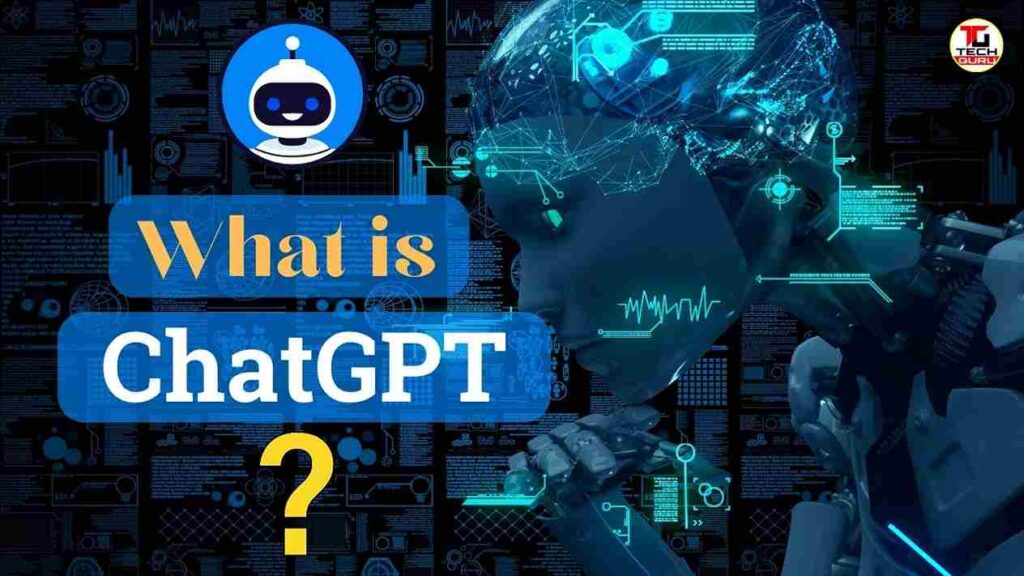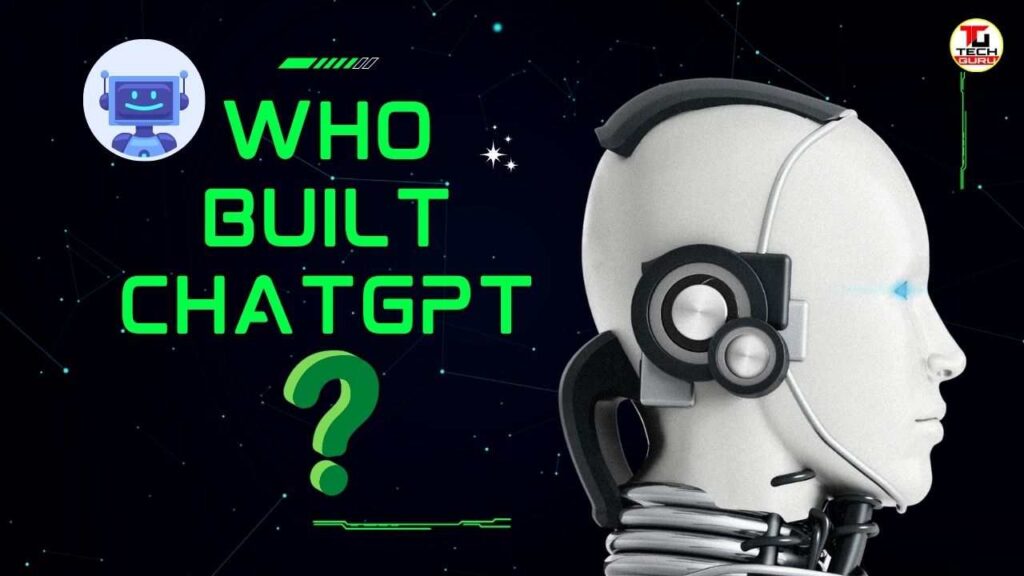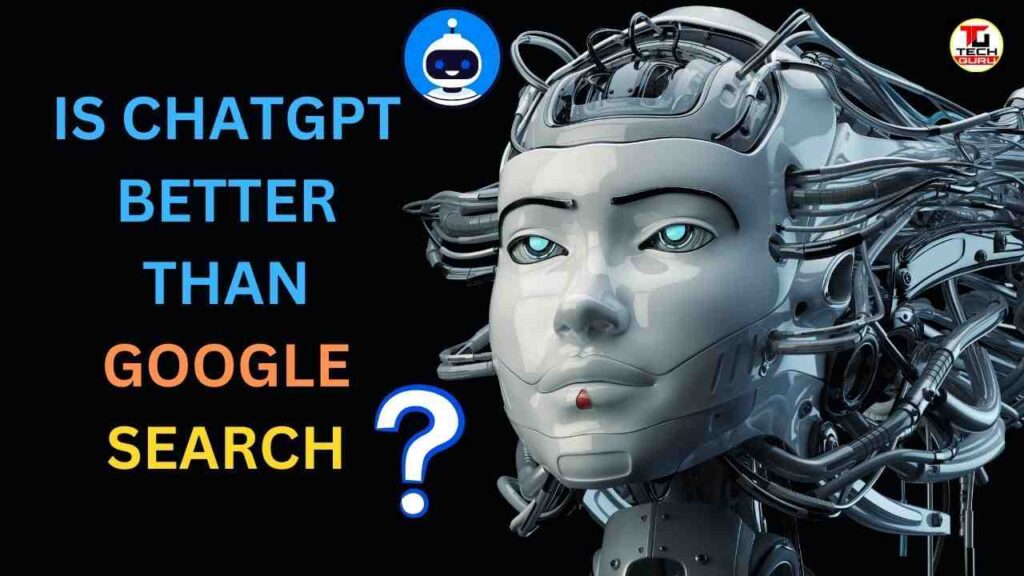What is ChatGPT?
ChatGPT is a variant of the GPT (Generative Pre-trained Transformer) language model that is specifically designed for conversational tasks such as chatbots and dialogue systems. It was developed by OpenAI as part of their efforts to improve the capabilities of machine learning models for natural language processing (NLP) tasks.
Like the original GPT, ChatGPT is a transformer-based model that has been pre-trained on a large dataset of text and can generate human-like text when provided with a prompt. However, ChatGPT has been specifically designed and trained to perform well on tasks involving conversations and dialogue, such as responding to user input in a chatbot or generating coherent and natural-sounding responses in a dialogue system.
One of the key features of ChatGPT is its ability to generate appropriate and relevant responses based on the context of the conversation. It uses its understanding of language and knowledge of the world to generate responses that are relevant to the conversation and maintain coherence with previous messages.
In addition to generating text, ChatGPT can also perform a number of other NLP tasks, such as language translation, summarization, and text classification. It is a powerful tool for building conversational AI systems and has the potential to significantly improve the natural language capabilities of chatbots and other dialogue systems.
- Training data: ChatGPT is trained on a large dataset of text conversations, which includes both structured and unstructured conversations from a variety of sources. This allows it to learn the nuances of language and the patterns of conversation, as well as gain a broad understanding of the world and common knowledge.
- Performance: ChatGPT is able to generate coherent and natural-sounding responses that are appropriate and relevant to the conversation. It can maintain context and coherence over long periods of time and is able to handle a wide range of topics and styles of conversation.
- Applications:– ChatGPT can be used to build chatbots and dialogue systems for a variety of applications, such as customer service, online education, and entertainment. It can also be used to improve the natural language processing capabilities of other AI systems, such as virtual assistants and language translation systems.
- Limitations: -While ChatGPT is a powerful tool for natural language processing, it is still a machine-learning model and is subject to the limitations of such models. It may not always generate appropriate or accurate responses, particularly if it is asked about topics that are outside of its training data or knowledge base. It is also important to carefully consider the ethical implications of using ChatGPT and other AI systems in real-world applications.
What kinds of questions can you ask?
As a large language model ChatGPT is capable of understanding and responding to a wide range of questions on a variety of topics.
Here are some examples of the types of questions that you can ask ChatGPT
- General knowledge: ChatGPT can answer factual questions about the world, such as “What is the capital of France?” or “Who invented the telephone?”
- Conversational: ChatGPT can engage in conversations with users, asking and answering questions in a natural and coherent manner. For example, you could ask it “How was your day?” and it might respond “It was fine, thank you. How was yours?”
- Opinion: ChatGPT can provide opinions on various topics, such as “What do you think about artificial intelligence?” or “Do you believe in extraterrestrial life?”
- Personal: ChatGPT can respond to personal questions about itself, such as “What is your favorite color?” or “What do you like to do in your free time?”
- Practical: ChatGPT can provide practical information and advice, such as “How do I fix a leaky faucet?” or “What are some good restaurants in the area?”
- Complexity: ChatGPT is able to understand and respond to complex questions that may require extensive knowledge and reasoning. For example, you could ask it “What are the most significant challenges facing the world today?” and it might provide a detailed and nuanced response that considers a variety of factors.
- Ambiguity: ChatGPT is able to handle ambiguous or open-ended questions, and can generate responses that are appropriate and relevant to the context of the conversation. For example, if you ask it “What do you think of love?” it might provide a thoughtful and reflective response that considers the many different facets of love and relationships.
- Context: ChatGPT is able to maintain context and coherence over long periods of time, and can use its understanding of the conversation to generate appropriate and relevant responses. This means that you can ask it follow-up questions or clarify points that it has made, and it will be able to understand and respond appropriately.
- Customization: ChatGPT can be customized and fine-tuned for specific use cases or applications. For example, if you wanted to build a chatbot for customer service, you could train ChatGPT on a dataset of customer service conversations and fine-tune it to handle common queries and issues. This would allow the chatbot to generate more accurate and relevant responses to user input.
- Integration: ChatGPT can be integrated into a variety of different systems and platforms, such as chatbots, virtual assistants, and language translation systems. This allows it to be used in a wide range of applications and environments, making it a versatile and flexible tool for natural language processing.
- Responsiveness: ChatGPT is able to generate responses in real time, making it well-suited for use in chatbots and other interactive systems. It is able to understand and respond to user input quickly and accurately, making it a valuable resource for users looking for information and assistance.
- Language support: ChatGPT is able to understand and generate text in multiple languages, depending on the specific model and training data that are used. This makes it a useful tool for language translation and other NLP tasks that require multilingual support.
Overall, ChatGPT is a powerful tool for natural language processing and can handle a wide range of questions and topics. It has the potential to significantly improve the capabilities of chatbots and other conversational AI systems and can be a valuable resource for users looking for information and assistance.
Who built ChatGPT?
ChatGPT was developed by OpenAI, a research organization that focuses on artificial intelligence and machine learning. OpenAI is known for its work on a variety of AI-related projects, including the development of language models such as GPT and GPT-2, as well as other machine-learning tools and techniques.
OpenAI was founded in 2015 by a group of influential figures in the tech industry, including Elon Musk, Sam Altman, and Greg Brockman. The organization’s mission is to advance the field of artificial intelligence in a responsible and ethical manner, and to promote the development of AI technologies that can benefit society as a whole.
ChatGPT is one of several language models developed by OpenAI, and is specifically designed for conversational tasks such as chatbots and dialogue systems. It is a powerful tool for natural language processing and has the potential to significantly improve the capabilities of chatbots and other conversational AI systems.
Is ChatGPT free in 2023?
The availability and pricing of ChatGPT may vary depending on the specific circumstances and context in which it is being used. In some cases, ChatGPT or other language models developed by OpenAI may be available for free or at a reduced cost for research and educational purposes.
However, if you are looking to use ChatGPT or other language models developed by OpenAI for commercial purposes, you may need to pay a fee or license the technology. OpenAI offers a variety of pricing options for the commercial use of its language models, including subscription-based models and pay-per-use models.
It is always important to carefully consider the terms of use and any applicable fees or licensing requirements before using ChatGPT or other language models for commercial purposes. You should also be aware of any potential legal or ethical issues that may arise when using AI technologies in your business or organization.
What are the limits of ChatGPT?
Like all machine learning models, ChatGPT is subject to certain limitations and constraints. Some of the key limitations of ChatGPT include:
- Accuracy: While ChatGPT is able to generate coherent and natural-sounding responses that are appropriate and relevant to the conversation, it is still a machine-learning model and may not always generate accurate or appropriate responses. It is important to carefully evaluate the output of ChatGPT and any other AI system to ensure that it is accurate and appropriate for your needs.
- Bias: ChatGPT and other AI systems can be biased in various ways, depending on the data that they are trained on and the algorithms that they use. This can lead to biased or unfair outcomes in certain situations, and it is important to be aware of these potential biases and take steps to mitigate them.
- Knowledge: ChatGPT is trained on a large dataset of text and has a broad understanding of the world and common knowledge. However, it is still limited by the information that it has been trained on, and may not be able to provide accurate or appropriate responses if it is asked about topics that are outside of its training data or knowledge base.
- Ethical considerations: ChatGPT and other AI systems raise a number of ethical considerations, including issues related to privacy, accountability, and transparency. It is important to carefully consider the ethical implications of using ChatGPT and other AI systems and to take appropriate steps to address any potential concerns.
- Data quality: The quality and diversity of the data that ChatGPT is trained on can significantly impact its performance and the accuracy of its responses. If the training data is biased or lacks diversity, ChatGPT may generate biased or inappropriate responses. It is important to carefully consider the data that is used to train ChatGPT and other AI systems and to ensure that it is representative and diverse.
- Model size: The size of the ChatGPT model can impact its performance and the accuracy of its responses. Larger models are typically more accurate and can handle more complex tasks, but they may also require more resources and be more expensive to use
- Training time: Training ChatGPT and other large language models can be a time-consuming and resource-intensive process. It may take days or even weeks to train a large model on a dataset of text, depending on the size of the model and the hardware that is used.
- Energy use: Training and using large AI models like ChatGPT can be energy-intensive, as they require significant computational resources. This can be a concern for organizations or individuals looking to use ChatGPT or other large language models in an environmentally sustainable way.
Overall, ChatGPT is a powerful tool for natural language processing, but it is important to be aware of its limitations and to use it appropriately. It is always a good idea to carefully evaluate the output of ChatGPT and any other AI system to ensure that it is accurate and appropriate for your needs.
Will ChatGPT help students cheat better?
It is important to note that ChatGPT and other language models are not designed to be used as cheating tools, and using them for this purpose is unethical and potentially illegal. Language models like ChatGPT are designed to generate coherent and natural-sounding text based on the input that they are given, and they do not have the ability to provide original ideas or insights.
Using ChatGPT or other language models to generate answers for assignments or exams would not likely be effective, as the generated text may not be accurate or relevant to the specific topic or task at hand. In addition, using ChatGPT or other AI tools to cheat could be considered academic dishonesty and could result in serious consequences, such as failing grades or expulsion from school.
It is important to remember that the purpose of education is to learn and gain knowledge, and cheating undermines this goal. Instead of trying to cheat, it is better to seek help and support from teachers, tutors, or other trusted sources when you are struggling with assignments or exams.
- Accuracy: As mentioned earlier, ChatGPT and other language models are not designed to provide original ideas or insights, and may not generate accurate or relevant responses when used for academic assignments or exams. In addition, the generated text may not be written in a style or format that is appropriate for academic work, which could raise suspicions and lead to consequences.
- Ethical considerations: Using ChatGPT or other AI tools to cheat is unethical and undermines the purpose of education. Cheating undermines the integrity of academic work and can have negative consequences for both the individual who is cheating and for the education system as a whole.
- Legal considerations: Depending on the specific circumstances and context, using ChatGPT or other AI tools to cheat could also be illegal and could result in criminal charges or other legal consequences. It is important to be aware of the potential legal implications of using AI tools for cheating and to avoid engaging in such activities.
Overall, it is important to remember that the purpose of education is to learn and gain knowledge and that cheating undermines this goal. Instead of trying to cheat, it is better to seek help and support from teachers, tutors, or other trusted sources when you are struggling with assignments or exams.
Can ChatGPT write software in 2023?
While ChatGPT and other language models are capable of generating text and performing a variety of natural language processing tasks, they are not designed to write software or other types of code. Language models like ChatGPT are designed to understand and generate human-like text based on the input that they are given, but they do not have the ability to understand or execute code.
Writing software and other types of code typically requires a high level of technical expertise and an understanding of programming languages and algorithms. Language models like ChatGPT are not equipped to handle these types of tasks and are not a suitable substitute for human programmers or developers.
If you are looking to write software or develop other types of code, it is generally best to use specialized programming languages and tools that are designed for these tasks. There are many resources available to help you learn how to program, including online tutorials, books, and online courses.
What’s off-limits?
It is important to use ChatGPT and other language models in an appropriate and ethical manner. There are certain types of tasks or applications that may be off-limits or inappropriate for ChatGPT or other language models to perform. Some examples of tasks or applications that may be off-limits for ChatGPT or other language models include:
- Cheating: As mentioned earlier, ChatGPT and other language models are not designed to be used as cheating tools, and using them for this purpose is unethical and potentially illegal. Using ChatGPT or other AI tools to generate answers for assignments or exams would not likely be effective, and could result in serious consequences.
- Spam or abuse: ChatGPT and other language models should not be used to generate spam or abusive content. It is important to use these tools in a responsible and respectful manner and to avoid using them to generate content that is harmful or inappropriate.
- Sensitive or confidential information: ChatGPT and other language models should not be used to handle or generate sensitive or confidential information, such as personal or financial data. It is important to protect this type of information and to ensure that it is handled in a secure and responsible manner.
- Illegal or unethical activities: ChatGPT and other language models should not be used to engage in illegal or unethical activities. It is important to use these tools in a responsible and legal manner and to avoid using them to engage in activities that are harmful or inappropriate.
Overall, it is important to use ChatGPT and other language models in an appropriate and ethical manner and to consider the potential impacts and consequences of their use.
Is ChatGPT better than Google search in 2023?
ChatGPT and Google Search serve different purposes and have different capabilities. Google Search is a search engine that is designed to help users find information on the internet by indexing and ranking web pages based on their relevance and quality. It is an effective tool for finding information on a wide range of topics and is particularly useful for finding specific pieces of information or answering factual questions.
On the other hand, ChatGPT is a large language model that is specifically designed for natural languages processing tasks, such as chatbots and dialogue systems. It is able to understand and generate human-like text based on the input that it is given, and can engage in conversations and provide responses that are appropriate and relevant to the context of the conversation.
Which tool is better for a particular task will depend on the specific needs and goals of the user. Google Search is generally better for finding specific pieces of information or answering factual questions, while ChatGPT is better suited for tasks that involve understanding and generating natural language text. Both tools can be useful resources for different purposes, and it is often helpful to use a combination of both to find the information that you need.
What is the full form of ChatGPT?
The full form of ChatGPT is a “Generative Pre-trained Transformer”
How many users does Chatgpt have?
In India OpenAI’s ChatGPT, the artificial intelligence-powered chatbot that has gone viral has crossed one million users in less than a week.
What is the official website of ChatGPT?
The official website of ChatGPT is ” Openai.com“
When ChatGPT was launched?
ChatGPT was launched on the “30th of November 2022”.



